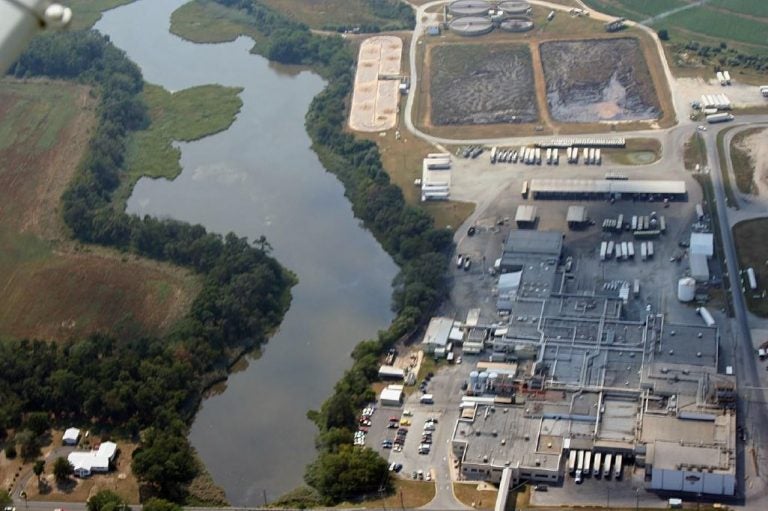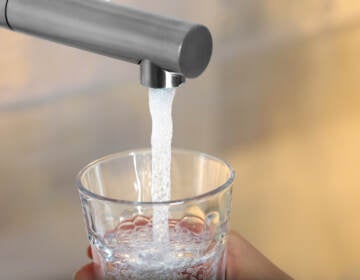Delaware poultry processor to pay $500,000 for contaminating drinking water
The poultry processor has reached a deal with Delaware environmental regulators to settle violations at its wastewater treatment facility.

An aerial image of Mountaire's Millsboro facility is included in the Delaware Center for the Inland Bays report about water contamination caused by the facility. (Courtesy Delaware Center for the Inland Bays)
Mountaire Farms, one of the largest employers in Sussex County, is legally allowed to spray up to 2.6 million gallons of treated wastewater onto farm fields surrounding the town of Millsboro in southern Delaware. But in November 2017, Delaware’s Department of Natural Resources and Environmental Control notified the poultry processing giant that it was in violation of its permit as a result of a failure at the company’s wastewater treatment plant. That failure resulted in too much effluent being sprayed on farm fields, ultimately contaminating groundwater and drinking water supplies.
By August 2017, the department reported that Mountaire had already exceeded the total amount of nitrogen it was allowed to apply to its farm fields for the whole year. “Reporting through August shows nine out of 13 fields have already exceeded the limit for the calendar year 2017,” the violation notice said. “August’s report alone showed six fields were loaded in excess of the [annual] permit limit just in the month of August.”
A report issued in 2018 by the Center for the Inland Bays found that the contamination has contributed to high levels of nitrogen in the Indian River. “The average total nitrogen concentration here is over twice the healthy limit for the river,” the report reads. “Phosphorous is 40% higher than the healthy limit, and floating algae (measured as chlorophyll) is more than five times greater than the healthy limit.”
To settle those violations, Mountaire will pay a $420,000 civil penalty. That penalty was reduced from $600,000 because of what the Department of Natural Resources and Environmental Control calls Mountaire’s “environmentally beneficial offset.” The company has agreed to offer nearby residents options for alternative water supply, including going to a whole-house filtration system, hooking up to municipal water, or digging deeper wells. The company also will reimburse the department $25,000 for expenses incurred during the investigation.
In addition, Mountaire has also entered into a conciliatory agreement to address other violations at the company’s facility in Selbyville. That includes unauthorized discharges of pollutants and the release of partially-treated wastewater. As part of that agreement, the company will pay an additional administrative penalty of $230,000.
That penalty could be cut in half if Mountaire performs a wetland restoration or enhancement project along the Indian River or Swan Creek.
In a statement, Mountaire said, “We are ready to move forward and glad that this agreement allows us to do that. This will bring closure on all outstanding issues and it’s time the permitting process moves forward. We have been completely transparent with DNREC every step of the way, and our team has worked hard to make improvements at our existing plants while getting ready for construction of a new, state-of-the-art wastewater system in Millsboro to begin.”
WHYY is your source for fact-based, in-depth journalism and information. As a nonprofit organization, we rely on financial support from readers like you. Please give today.





